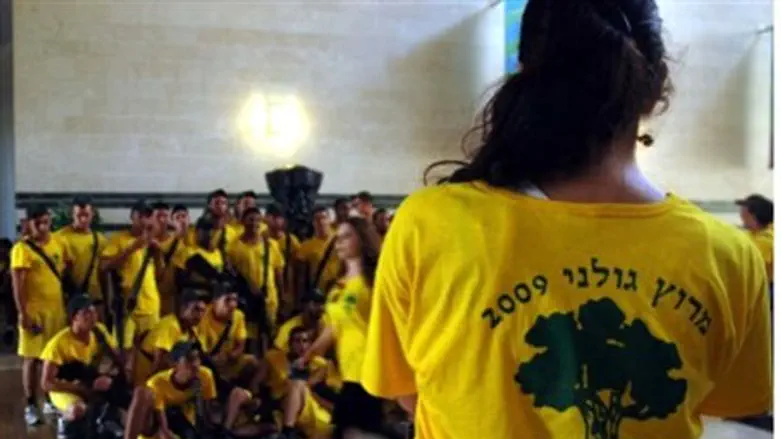
Major General Orna Barbivai, who heads the IDF's Personnel Directorate, is preparing new directives that critics say will make it more difficult for religious officers and soldiers to serve in the IDF without trespassing upon Judaism's basic precepts of modesty, as generally observed in the Orthodox sector.
Maariv's Yochai Ofer reported that the new directives being drawn up will include enlarging the quota for women in the Officers' Course at the Bahad 1 officer training facility, making it more difficult for religious soldiers to opt out of ceremonies involving women who sing on stage, and forcing officers to command over units that include women, if assigned to do so.
In addition, female sports instructors will be allowed to wear "immodest garb" – i.e., shorts and “spaghetti strap” undershirts – while training men.
The new directives are coming under fire from religious-Zionist and hareidi rabbis alike, who see them as breaching the rights of religious soldiers, and who are asking why they have not been consulted on the matter - particularly in light of recent calls to increase religious enlistment in the armed forces.
"We know almost nothing and everything is under wraps, in contravention of past decisions,” said Hesder Yeshiva Federation Chairman Eitan Ozeri, according to Maariv. “I think this is very serious and this is a move that will undermine the service conditions of religious soldiers, yet there is no dialogue on this matter.”
According to Rabbi Moshe Hager, who heads the Federation of Pre-Military Academies, unspecified “women's groups” are apparently behind Barbivai's move.
"Commanders must be given freedom of action regarding women's singing, and it is unacceptable for a commander to force this kind of presence on soldiers,” he said. “We hope that the Chief of Staff will not agree to this suggestion. If you want to enlist young religious and hareidi soldiers, you must give them a way in which to integrate.”
The radical connection
Radical left-wing academicians and representatives of organizations created and funded by the far-left New Israel Fund (NIF) are dominant figures at venues like the Knesset's Committee for Advancement of Women, where matters concerning women in the IDF are discussed. Religious officers and a group called the Forum for a Strong IDF (FSIDF) say they have been fighting an uphill battle against these groups, which claim that the IDF is suffering from a phenomenon they have dubbed "hadata," loosely translated as "religionization."
For example, a leading speaker at a session of the Committee for the Advancement of Women on December 27, 2011, which hosted Barbivai and other senior female officers to discuss women's advancement in the IDF, was Rina Bar-Tal, then-chairwoman of the Israel Women's Network (IWN), a flagship organization of the NIF. She told the committee that she had approached Barbivai before the session and told her that she owes her appointment as the IDF's first female major general to the efforts of the IWN, as do other high-ranking female officers in the IDF.
Another featured speaker at the session, who also approached Barbivai during the session, was Dr. Orna Sasson-Levi, whose radical views are often couched in feminist terminology. In a book called “Identities in Uniform,” Sasson-Levi wrote that “The continuation of the conflict and the insistence on aggressive military solutions serve the interest of some of the men in Israel... from this it follows that the development of other models of masculinity... could fracture the power of the masculinity of combat, and destabilize Israeli militarism.”
FSIDF's Col. (res.) Raz Sagi has decried the "dangerous experiment" that feminist groups have forced the IDF to engage in by opening up combat units to women. Sagi cites studies that show that this policy involves lowering combat units' standards of training, as well as a very high rate of serious injury to women.
For their part, a number of left-wing former generals have accused religious officers of blocking women's advancement in a way that “hurts women on the basis of gender and forces norms of behavior that fit a small part of the religious populace upon the entire army."